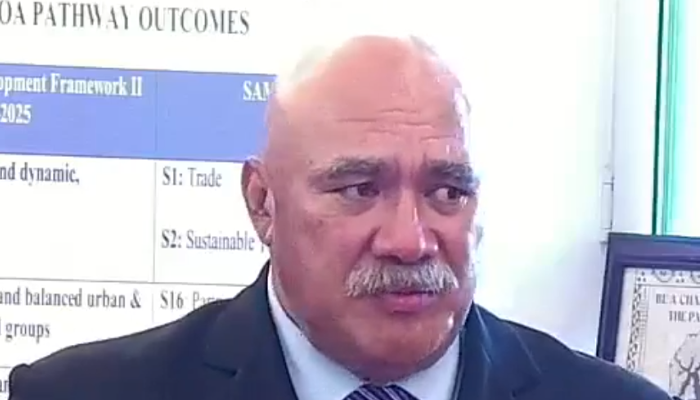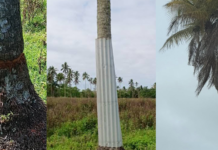Editorial – Tonga’s relationship with pigs is deeply rooted in tradition, economy, and daily life. These animals are not merely livestock—they are a cultural cornerstone, a source of income for families, and an essential part of celebrations, funerals, and rituals. Yet, the recent police campaign to shoot roaming pigs under the Animal Pound Act has sparked outrage and grief among Tongans who rely on these animals for survival.

In Tonga, pigs’ presence in feasts and fakapangai (formal events) is not just customary but often mandatory. No Tongan feast is considered complete without pigs on the table.
A viral video this week showing a dead pig on the roadside, with a police van driving away in the background, overlays a distraught woman’s voice asking a man moving the pig, “When did they shoot it?” This single frame captures both the devastation and the injustice of the policy. This harsh enforcement raises a critical question: Is it time to revise this outdated and indiscriminate law?
Stray vs Roaming Animals
It is important at this stage to clarify the difference between pigs roaming in Tonga and what is understood in the palangi (Western) context as stray animals, where shooting may be justified if they pose a threat or cause damage. In Tonga, pigs and dogs that roam are customarily part of the practice known as fakataka (intentionally letting them out to forage, often because owners cannot provide enough food). True stray animals, by contrast, are those without owners. Therefore, the police shooting campaign primarily targets roaming, not genuinely stray, animals, raising concerns about cultural and economic impacts.
Some nobility estates and villages have long practised controlled roaming, with fencing of boundaries set to protect crops. This system These communities recognized the balance between earnings and animal safety. However, the current law disregards this cultural context, enforcing a blanket policy that harms those it should protect.
When Policy Punishes Poverty
It is understood that before shooting roaming pigs and dogs, except collared dogs, the police issued prior warnings for owners to secure their animals. While this may seem reasonable, consider the case of a widow who relies on her pigs as the sole source of income to support her five school-aged children, in a country with virtually no social welfare system. Shouldn’t the government provide alternatives before authorising lethal enforcement if she cannot afford to build a pig pen?
Section 18 of the Animal Pound Act permits police to kill any pig found roaming on roads or public property. While the intent may have been to control nuisance animals, the law makes no distinction between truly stray pigs and those intentionally let loose under the traditional practice of fakataka puaka, where pigs are allowed to roam but are still owned and cared for. Many families raise pigs this way, selling piglets to pay for school fees or keeping them for ceremonial purposes. Shooting these pigs doesn’t just destroy livestock, it destroys livelihoods.
In the past, when police shot pigs and dogs, communities responded with anger and frustration, often silently condemning the authorities. If it were a kāinga or community member who committed these acts, it would trigger the practice of fakamotumotu, severing familial and social ties.
Livelihoods Over Lethal Measures
This is a wake-up call for the government. The former two governments recently poured over $20 million into Lulutai Airlines’ failed venture, including a $2 million grant from Australia. Why isn’t the government investing in this instead?
This week, the Prime Minister announced a $30 million budget policy to launch a bond marketing program to support the private sector, specifically fisheries, including importing fish from Fiji. The goal is to provide locals with cheaper, healthier food alternatives to expensive, unhealthy red meats. While this sounds promising, its success remains uncertain, as such an approach has never been tried before.
Meanwhile, locally raised pigs have long been proven productive and effective in every respect—providing families with income and enabling them to fulfil their kavenga (cultural obligations). So why doesn’t the government invest in small-scale pig keeping? Financial support for feed and pigsties would be far more constructive than shooting these vital animals.
While public safety and property protection are important, the current enforcement is too extreme, indiscriminate, and destructive. The government must revisit this law, engage with communities, and find a solution that respects tradition and modern governance.
Shooting pigs should never be the first—or only—option. It’s time for a policy that reflects Tongan values, not undermines them.







